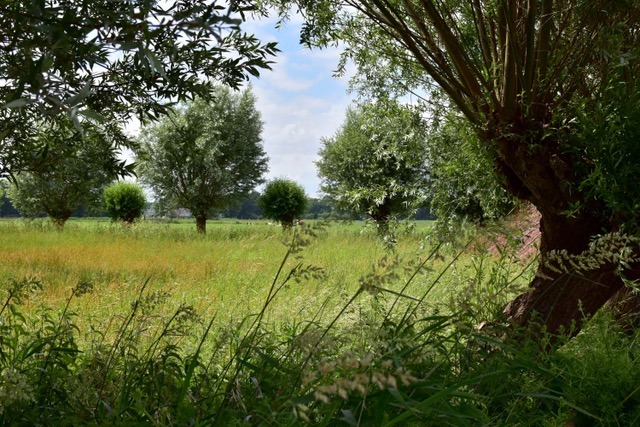For all who seek to walk with Jesus over the long haul, much time will be spent in what the Psalms calls “the depths.” Suffering is simply part of what it means to be human. Whether we ourselves are going through difficult times or we are walking with others through difficult times, we will find ourselves in “the depths,” in these unsettling times of pain or confusion or angst. The ways we respond to these times will determine much of the character of our lives.
“Out of the depths I cry to you O Lord!” the psalmist writes and thereby invites us to share the whole of our life with God. For if there is anything that resounds from a careful reading of the Psalms it is that there is absolutely no part of our experience that is out of bounds with God. The Psalms teach us and invite us to live everything before God.
Pastor Eugene Peterson reflections upon Psalm 130 capture our great need as individuals or as communities when we encounter these seasons in “the depths.” Allow Psalm 130 and these Peterson’s reflections to intersect with your own experience: What do they evoke or stir in your mind & heart?
Out of the depths I cry to you, O Lord!
LORD, hear my voice!
Let your ears be attentive to the voice of my pleas for mercy!
If you, O LORD, should mark iniquities,
O LORD, who could stand?
But with you there is forgiveness, that you may be feared.
I wait for the LORD, my soul waits, and in his word I hope;
My soul waits for the LORD
more than watchmen for the morning,
more than watchmen for the morning.
O Israel, hope in the Lord!
For with the LORD there is steadfast love
and with him is plentiful redemption.
And he will redeem Israel from all his iniquities.
Psalm 130
Eugene Peterson writes,
When we suffer we attract counselors as money attracts thieves. Everybody has an idea of what we did wrong to get ourselves into such trouble and a prescription for what we can do to get out of it. We are flooded first with sympathy and then with advice, and when we don’t come around quickly we are abandoned as a hopeless case. But none of that is what we need. We need hope. We need to know that we are in relation to God. We need to know that suffering is part of what it means to be human and not something alien. We need to know where we are and where God is. We need an eye specialist rather, than, say, a painter. A painter tries to convey to us with the aid of his brush and palette a picture of the world as he sees it; an ophthalmologist tries to enable us to see the world as it really is.
There is a passage in George MacDonald’s novel The Princess and Curdie that tells us that when Curdie reaches the castle, he sees the great staircase and he knows that to reach the tower he must go further. The narrator takes the occasion to say that “those who work well in the depths more easily understand the heights, for indeed in their true nature they are one and the same.”
For the person who suffers, has suffered, or will suffer Psalm 130 is essential equipment, for it convinces us that the big difference is not in what people suffer, but in the way they suffer. (“The same shaking that makes fetid water stink, makes perfume issue a more pleasant odor.”) The psalm does not exhort us to put up with suffering; it does not explain it or explain it away. It is, rather, a powerful demonstration that our place in the depths is not out of bounds from God. We see that whatever or whoever got us in trouble cannot separate us from God, for “there is forgiveness with thee.” We are persuaded that God’s way with us is redemption and that the redemption, not the suffering, is ultimate.
The depths have a bottom; the heights are boundless. Knowing that, we are helped to go ahead and learn the skills of waiting and hoping by which God is given room to work out our salvation and develop our faith while we fix our attention on his ways of grace and resurrection.[1]
Questions for Conversation:
• What do you find yourself saying to yourself or wondering as you listen to these words?
• How do Peterson’s words intersect with or speak to your own experience today?
• George MacDonald writes, “those who work well in the depths more easily understand the heights, for indeed in their true nature they are one and the same.” How do you make sense of this statement? How have you seen this to be true in your life or in the life of someone you have observed “in the depths”?
• Any thoughts or wonderings emerging from your heart? Convert those thoughts into a written prayer.
Join us!
A VantagePoint3 Gathering
Topic: “Walking with God and Others through Pain and Suffering”
Banff, Alberta
October 24-26, 2014
[1] Eugene Peterson, A Long Obedience in the Same Direction: Discipleship in an Instant Society, (IVP, 1980), 140-141.





James De Lange On August 20, 2014 at 5:21 am
Rob… Thank you for the thoughtful post. I just returned home from 6 nights of chemo in the hospital and I’m trying to sort out my emotions through these depths. On one hand I am want to model for my kids the joy and hope that can come only through faith in a loving God, and on the other hand I am afraid that this loving may be passing a cup that will be bitter. How do I drink from this cup? Love you – James
Rob Loane On August 20, 2014 at 8:52 pm
James…
So good to hear your voice. You (and Erin) have been on my mind as you journey through this very difficult turn in your story. And please keep in touch via email or Facebook. Wish this conversation could be over coffee or in front of Emerson for that matter….but this will have to do for now.
In response to your question I find myself thinking primarily “I don’t really know how you do this James.” Such a hard journey… lacking any meaningful easy answers.
Where my thoughts also go is to the tensions that we encounter in this life of faith…critical tensions, like living honestly and hopefully in the world. The Psalms have provided me the most consistent tutoring in learning to live amidst this basic tension (e.g. Psalm 13, 30, 77, 130). Yes, I want to be hopeful but I also want to be honest. Over and again the psalmists remind me that there is no fundamental contradiction between being honest and being hopeful. Sure there is much celebration and friendship and gratitude, but there is also much struggle and fear and loneliness and grief. There are even startling times in which the psalmist seems almost faithless, but he chooses to bring it all before the Lord. God’s presence dominates the conversation (living absolutely everything before God).
In this regard, the psalmists challenge the way I learned Christianity…almost with a sense that faith required a cheery optimism, ones best foot always forward, very little space for negative thoughts or emotions. I rarely got a sense of the struggles of faith that I have since encountered in adulthood. The psalms have offered permission to struggle in a life of faith (with God).
So when it comes to modeling for your kids, I think about both your honesty with God and your joy and hope in a loving God. We are invited to pray as we can, not as we think we should (Romans 8:26-27). God does not ask us to muscle some sort of faithfulness, but to bring all that we are before him. What he seems to promise is that “his grace will be sufficient for us.” My prayer for you is that the Spirit might be deeply generous with your body and your heart and your family as you seek to live out these struggles honestly and hopefully and with others.
Rob Lees On January 11, 2022 at 7:41 pm
As a palliative care nurse, the physiological suffering we have a tool box for (ie pain meds, sedatives, anti nausea meds etc), Yet dealing with the loneliness that comes from illness is what separates the average nurse from the artist in care giving. We all suffer at one time or another, but we have Jesus who among other names, identifies as a man of sorrows. Searching the character of Jesus is what has helped me the most in my suffering. When we can think of the needs of others in our own pain, we reflect Christ to others most in those times.